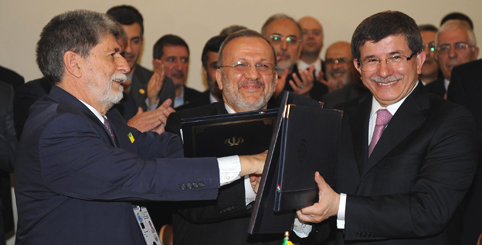Since September 11, 2001, America's foreign policy and the future of the global system have occupied a central place in current international affairs debates. The neocon arguments became increasingly influential during the last years of the Clinton administration and found resonance in the Bush administration. In the aftermath of the 9/11 events, both the ideological arguments and the excuses were in place for the realization of the neocon project. This period witnessed the deterioration of already weakened international institutions and the "global order." The end results were, among other things, the invasions of Iraq and Afghanistan as well as the tacit support for the Israeli attacks on Lebanon and Gaza. The overall political cost of all these policies was roundly criticized by many and analyzed as the paramount example of American "unilateralism."
The United States has entered into six different wars since the fall of the Berlin Wall. Its involvement in wars in Panama, Somalia, Kosovo, Afghanistan, and Iraq (twice) has shown that the US has become more of a force causing frictions than fostering mutual understanding appropriate for the nature of the post-Cold War global system. Towards the end of the second term of the Bush administration, similar criticisms and perspectives began to be offered by prominent American thinkers, politicians, and in military circles that centered around three major issues: 1) multi-polarity and multilateralism; 2) emerging powers; and 3) post-America. These discussions were further encouraged by Obama's election to the American presidency, which appeared as an influential and inspiring factor for the establishment of a new and different approach to the changing global order.
Obama came to power strongly utilizing the rhetoric of change. There was an expectation, both domestically and internationally, that he was going to follow a very different route from that of the Bush administration. Although he started off his administration having to be a spectator to the Israeli attack on Gaza, Obama underlined that his administration's attitude in dealing with global problems was going to involve more dialogue and a more democratic approach. Especially on the issues of Iran, Afghanistan, and Iraq, he pledged that he was going to stay away from the previous administration's approach and policies. However, he first had to take a step backwards on the Afghanistan issue, and then, he let the Iraq issue take on an unclear course. The Obama administration's approach to the Iran issue is now swinging in the opposite direction after Iran accepted the IAEA's October 2009 offer on a fuel-swap through the recent diplomatic efforts of Brazil and Turkey.
Since its election to the UN Security Council as a non-permanent member, Turkey has been conducting serious diplomatic efforts with Iran. Turkey and Brazil, whose involvement was particularly visible during the Nuclear Summit in Washington, DC last month, brought the IAEA's offer to the Iranians once again. Iran agreed to the Vienna Group's former offer by accepting that Iran give 1,200 kilograms of its low enriched uranium (LEU) to Turkey. This step was considered a very serious one by specialists closely following the nuclear negotiations. But instead of responding positively to the agreement, the US seems fixated on making sanctions against Iran a reality. In order to render this agreement irrelevant, questions were raised on a number of issues. These questions seem to focus on the quantity of LEU Iran might possess other than the 1,200 kilograms to be sent to Turkey and on the fact that Iran does not pledge to discontinue its nuclear enrichment program through this agreement. While there are certainly aspects of this agreement that may need closer scrutiny and further discussions, it nonetheless signifies an important achievement of diplomatic efforts, the importance of which the Obama administration has emphasized repeatedly with respect to many international issues and global challenges.









